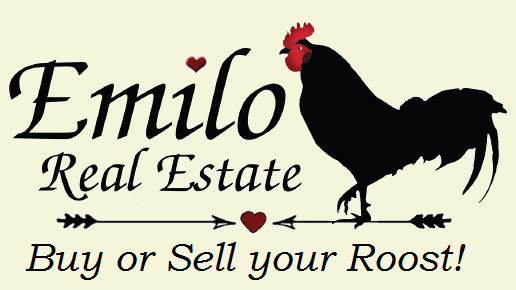Market News
-
Unlocking the Benefits of Your Home's Equity
Source: Simplifying the Market Published on 2024-07-26
-
How the Economy Impacts Mortgage Rates
Source: Simplifying the Market Published on 2024-07-25
-
A Newly Built Home May Actually Be More Budget-Friendly
Source: Simplifying the Market Published on 2024-07-24
-
Why a Foreclosure Wave Isn’t on the Horizon
Source: Simplifying the Market Published on 2024-07-23
-
How Affordability and Remote Work Are Changing Where People Live
Source: Simplifying the Market Published on 2024-07-22
-
The Biggest Mistakes Homebuyers Are Making Right Now
Source: Simplifying the Market Published on 2024-07-19
-
Unlocking Homebuyer Opportunities in 2024
Source: Simplifying the Market Published on 2024-07-18
-
Why Fixing Up Your House Can Help It Sell Faster
Source: Simplifying the Market Published on 2024-07-17
-
How To Determine if You’re Ready To Buy a Home
Source: Simplifying the Market Published on 2024-07-16
-
Why Working with a Real Estate Professional Is Crucial Right Now
Source: Simplifying the Market Published on 2024-07-15
-
How Do Presidential Elections Impact the Housing Market?
Source: Simplifying the Market Published on 2024-07-12
-
Why Moving to a Smaller Home After Retirement Makes Life Easier
Source: Simplifying the Market Published on 2024-07-11
-
The Price of Perfection: Don’t Wait for the Perfect Home
Source: Simplifying the Market Published on 2024-07-10
-
Why Your Asking Price Matters Even More Right Now
Source: Simplifying the Market Published on 2024-07-09
-
Not a Crash: 3 Graphs That Show How Today’s Inventory Differs from 2008
Source: Simplifying the Market Published on 2024-07-08
Categories
Recent Posts
- 48 Hours in Addison County
- Holiday Sparkle in Vermont
- Home for the Holidays: Addison County Style
- Vermont Snow Banks and Curb Appeal in Winter
- Can Home Staging Really Win Over Buyers?
- Modern home electrical systems
- What Keeps Vermont Vermont? Sustainability, Creativity, Teamwork…
- Vermont Home Buyers FAQs
- September in Vermont is the Fairest Month
- Coffee in the Green Mountains
- Moonlight in Vermont, Light Pollution, and the Perseid Meteor Shower
- Smaller Down Payments Lure More Buyers
- The Curse Of The First Offer
- Winter Storms and Cozy Vermont Homes with Fireplaces
- Vermont Real Estate Outlook for 2014 and 2015



![Reblog this post [with Zemanta]](http://img.zemanta.com/reblog_e.png?x-id=ddfe3fe2-ba5b-4943-958c-2c24db0bc8c7)



